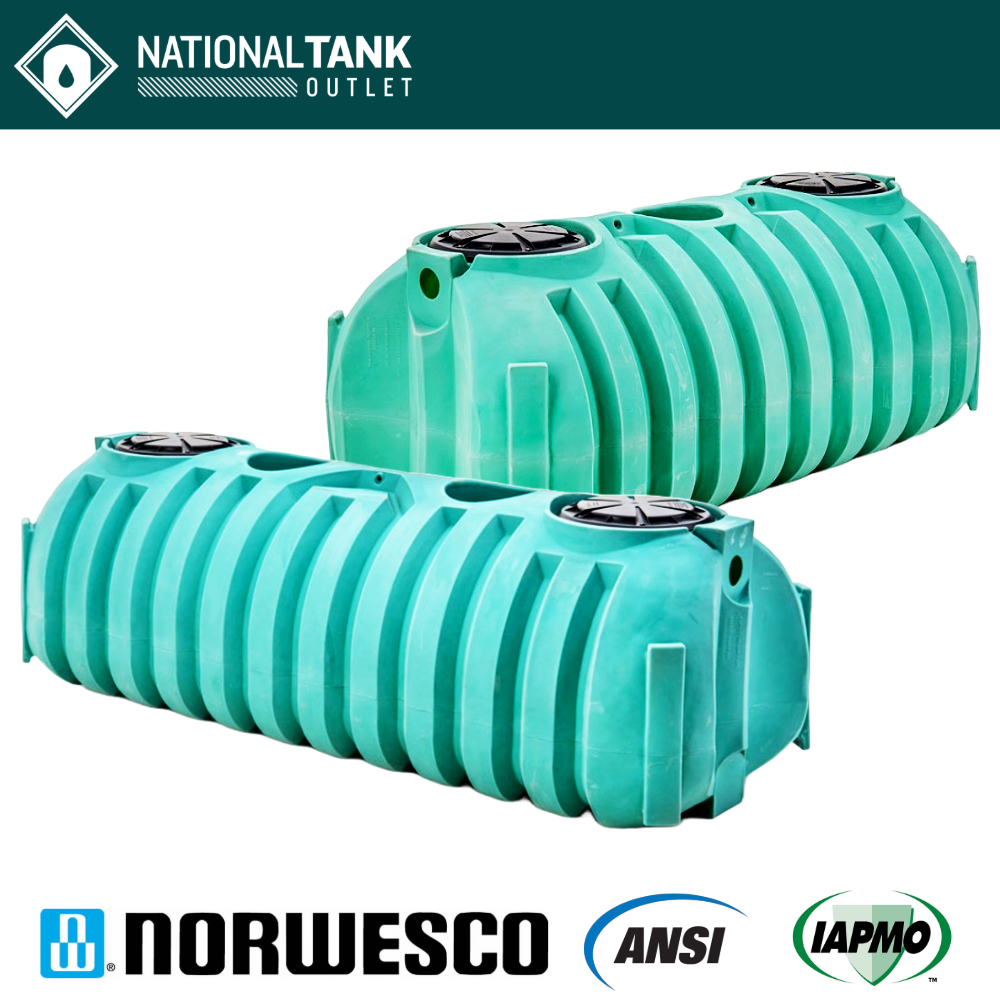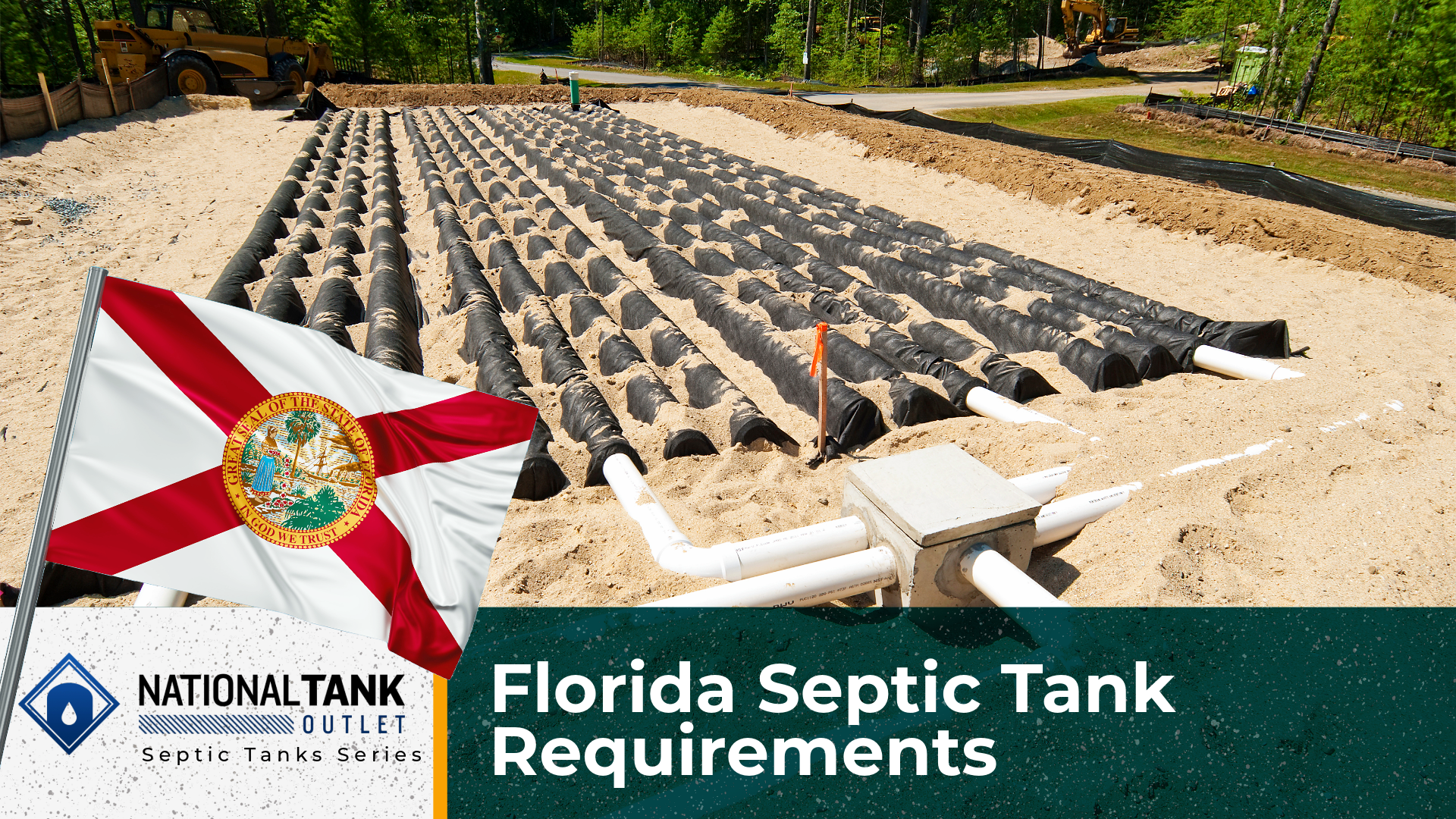
The Sunshine state of Florida is one of the states with the most septic tanks in use by residents and businesses in the nation. Millions of Florida residents, approximately 30% of the population, living in both rural and suburban areas rely on septic tanks for wastewater management. Septic tank systems in Florida provide these essential sanitation services and in order to protect the health of the public and Florida’s environment, there is a complex network of regulations involved. In this guide on Florida septic tank requirements, we will unpack the key details surrounding septic tank systems for homeowners, businesses, and contractors.
Florida State Septic Tank Regulations
The Florida State Department of Environmental Protection (DEP) is the primary governing body for enforcing and overseeing septic tank regulations, guidelines, installations, and compliance with legislative code Title 29 Chapter 381 Public Health Section 381.0065 for Onsite Sewage Treatment and Disposal Systems. The Florida DEP has a subdepartment, the Onsite Sewage Program, that focuses exclusively on responsible waste disposal and onsite sewer systems.

From the DEP, permitting and inspection of septic tank systems are handled by the Florida Department of Health (DOH) Environmental Health division and delegated to each county. Due to this and the variance in regional geography, local county health departments may have different and more specific regulations compared to the state. With septic tanks, it is always important to check with local authorities when planning to ensure your system will be in compliance.
Florida Septic Tank Definitions
In the state of Florida, what is commonly referred to as a septic tank is officially known and referred to in guidance documents as an Onsite Sewage Treatment and Disposal System, abbreviated OSTDS. This term is used by the various overseeing state departments to refer to the entire system and its components, whether it is a standard subsurface system or a mound drainfield system, an aerobic treatment unit, or an experimental septic tank system.
The Florida State definition here appreciates that these systems are not merely storage units for waste, but active treatment and disposal systems that play a critical role in managing the wastewater generated by people on properties not connected to a municipal sewer system.
Can I Install My Own Septic Tank in Florida
The question “Can I install my own septic tank in Florida?” is often asked by property owners looking at their options when building their own home. The answer, however, is somewhat unclear as guidance seems to state both professional installation is required and a homeowner can be exempt from the professional requirements for the construction of their own home’s septic tank.

The following quote is taken directly from the Florida law code for onsite sewage treatment and disposal systems:
“A property owner who personally performs construction, maintenance, or repairs to a system serving his or her own owner-occupied single-family residence is exempt from registration requirements for performing such construction, maintenance, or repairs on that residence, but is subject to all permitting requirements.”
Installation Requirements
Florida law and the FDEP say that all septic tank installations are to be performed by a registered contractor licensed to build septic tank systems or by a state certified plumber. However, the FDEP also says if the property owner chooses to perform the construction on their own owner-occupied single-family residence, they can be considered exempt from the registration requirements but will still have to perform the necessary site evaluations and permitting.
Why Professional Installation?
There are several reasons why professional installation is recommended:
- Expert Knowledge: Registered contractors and state-licensed plumbers have the experience and education needed to install septic systems correctly and to code compliance.
- Safety Measures: Incorrectly installed septic tanks can pose serious health and environmental hazards. Professionals are trained to handle these installations safely to significantly lessen these potential risks.
- Regulatory Compliance: Professional installation ensures that the system will comply with all current local and state regulations and avoid legal complications and fines.
- Quality Assurance: Hiring a professional provides quality assurance as they often offer guarantees on the work and you can have the confidence that they can get the job done right.
Permitting and Inspection
If a homeowner is installing their own septic tank system for their private, single-family residence, they must still file and be approved for a construction permit and successfully pass the inspection performed by the state after construction to ensure the system is in compliance. Failure to pass inspection will mean further work and modifications, costs, and another inspection with the associated fees.
Can a Polyethylene Septic Tank Be Installed and Used in Florida
Yes, a polyethylene septic tank can be installed and used in Florida. According to the Florida Administrative Code 64E-6.013 Standards for Onsite Sewage Treatment and Disposal Systems, Florida septic tanks must be built from either concrete, fiberglass, or polyethylene. Polyethylene septic tanks are known for their cost-effectiveness and trusted for their durability, both of which make them an excellent choice for modern septic tank systems. Polyethylene tanks are also popular for their light weight compared to concrete tanks, which makes them significantly easier to transport and move into position.
If you are a homeowner or contractor looking for Florida approved septic tanks, trust the National Tank Outlet to supply. We sell modern polyethylene septic tanks engineered and built to meet the requirements of the International Association of Plumbing and Mechanical Officials (IAPMO) and the American National Standards Institute (ANSI), as required by Florida. Our polyethylene septic tanks are rotational-molded, one-piece, watertight, corrosion-resistant containers certified for use in Florida septic systems.
Key Florida Septic Tank Requirements
Permits
Florida permits for septic tank systems are handled by the Environmental Health division of the Florida Department of Health’s local county departments. Different permits may be needed depending on the septic system type, (conventional or alternative), and the property being serviced, (residential or commercial). In most cases, a conventional septic system will be suitable and will require a construction permit that approves the site for improvement.

To file for and receive a construction permit will require submitting a site plan, a building plan, and the results from a site evaluation along with the necessary fee for the government’s review. The forms to apply for a Florida construction permit can be found here.
Site Evaluations
A site evaluation will involve a soil percolation that is performed on the earth to check how fast water flows through the native soil at the property. Evaluations also typically include a property assessment for nearby boundaries, water wells, topography, and environmental factors such as surface waters that may be of concern between natural groundwater and wastewater contamination.
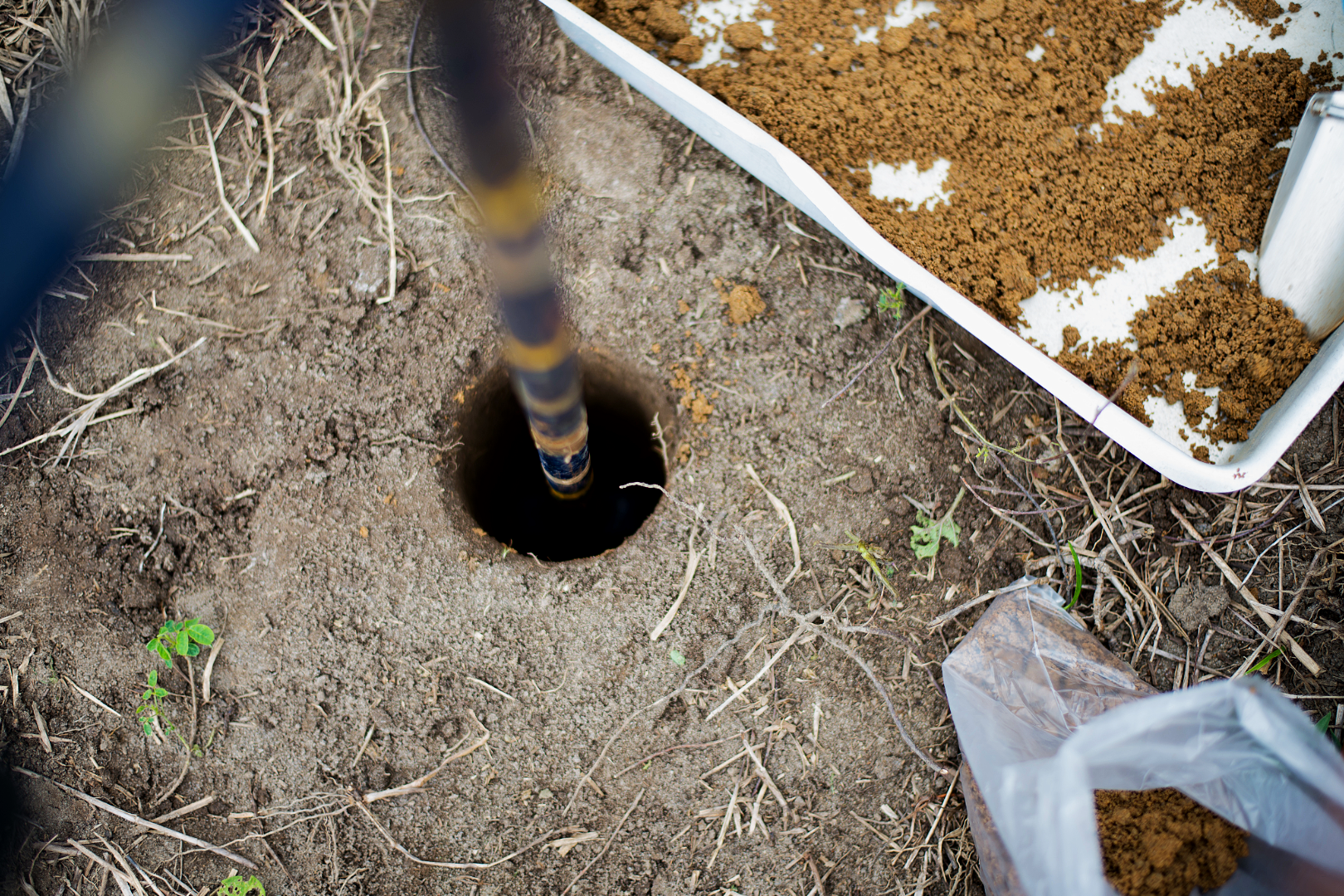

Florida regulations require site evaluations to be done by a licensed engineer or other qualified professional. For an additional fee, the state departments may be able to send out a representative to perform the site evaluation for you.
Septic System Siting and Design
All of the information in a septic tank construction permit application — the site plan, building plan, and site evaluation — will allow the Florida State Department of Environmental Protection to determine the septic system siting and design needs for the property.

In general, septic tank systems must be ideally placed to maintain a regulated minimum distance from water wells, water bodies, property lines, and other structures. The Florida DEP is responsible for helping in system design. An engineer may be required for some sites and will likely be needed for sites that require or elect to use an alternative septic tank system.
Septic System Components
Septic systems typically feature a septic tank, plumbing such as PVC pipe, a distribution box, and a drainfield. The exact components, their types, and specifications will depend on the system design criteria required by the system type to be installed and the site evaluation details.
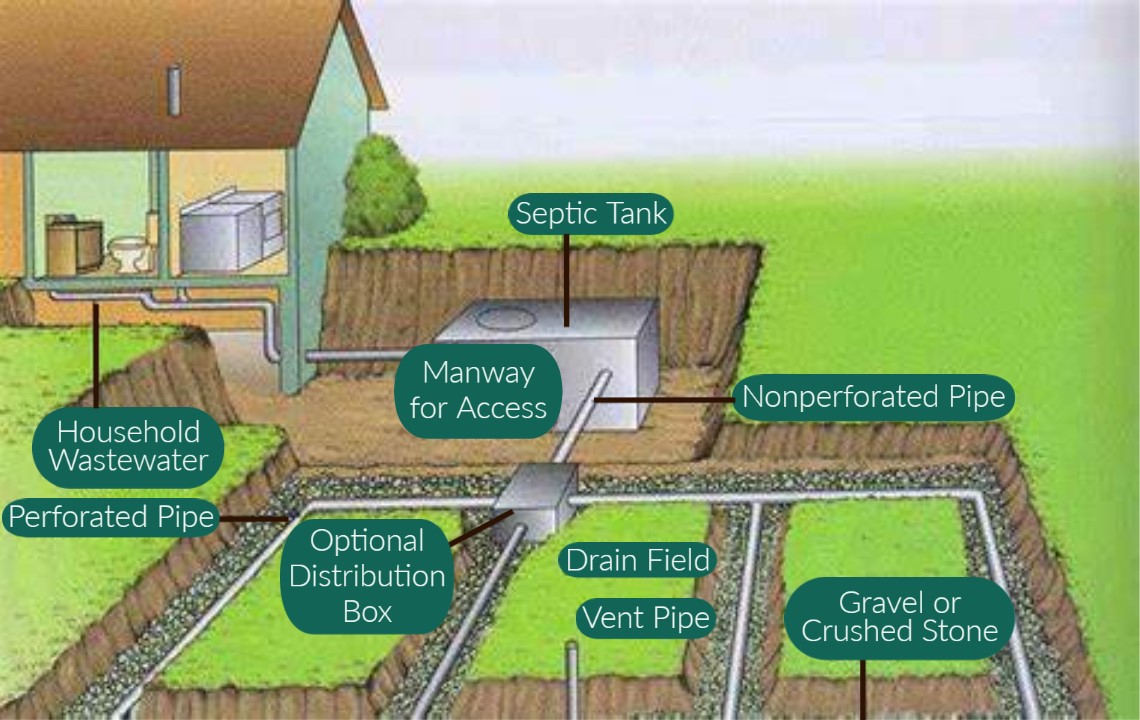
Septic Tank Sizes in Florida
The state of Florida regulations stipulate the size of septic tanks based on the property size and the expected volume of wastewater. The following table sourced from the state’s guidance document highlights the required septic tank sizes in Florida.
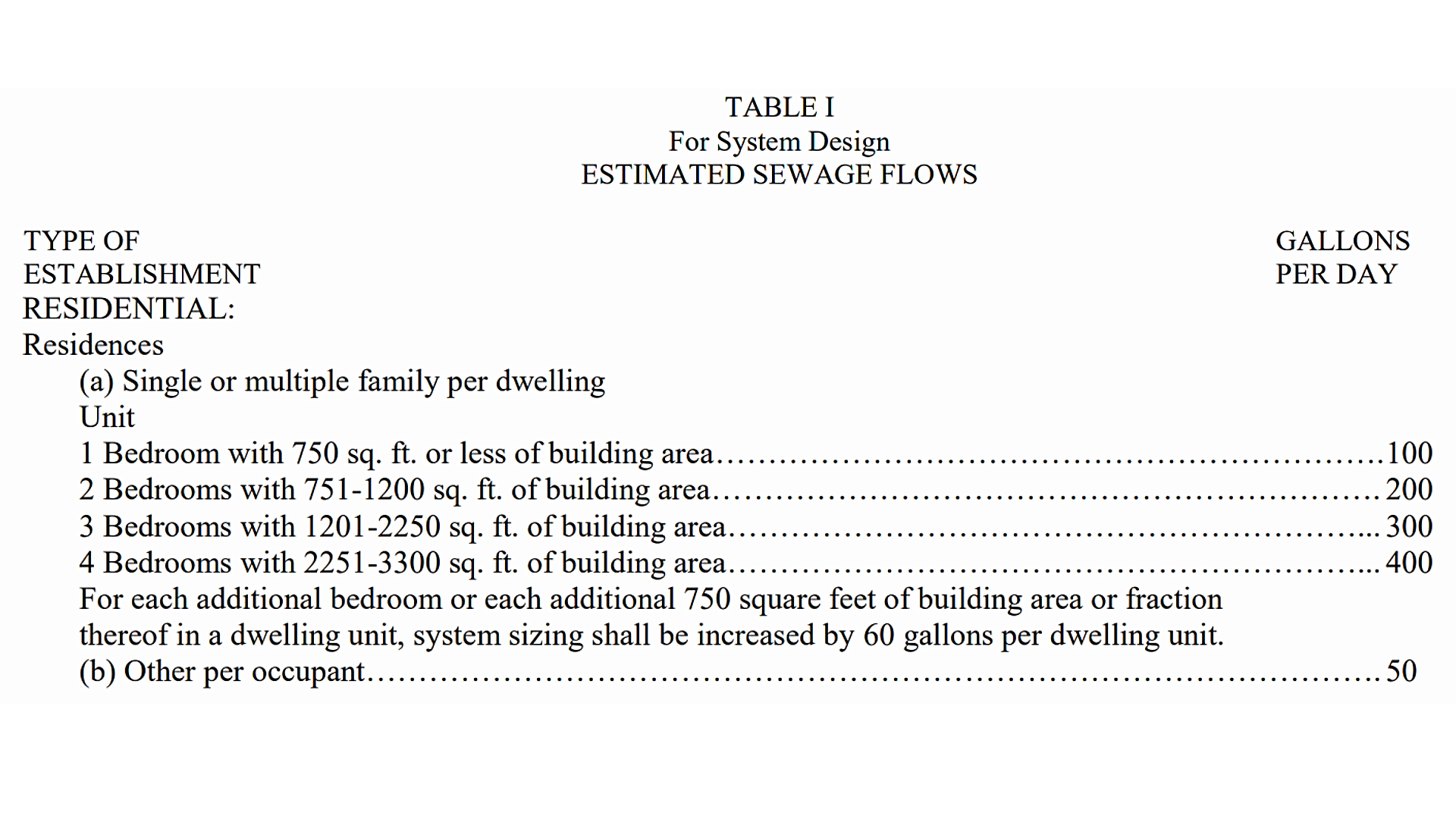
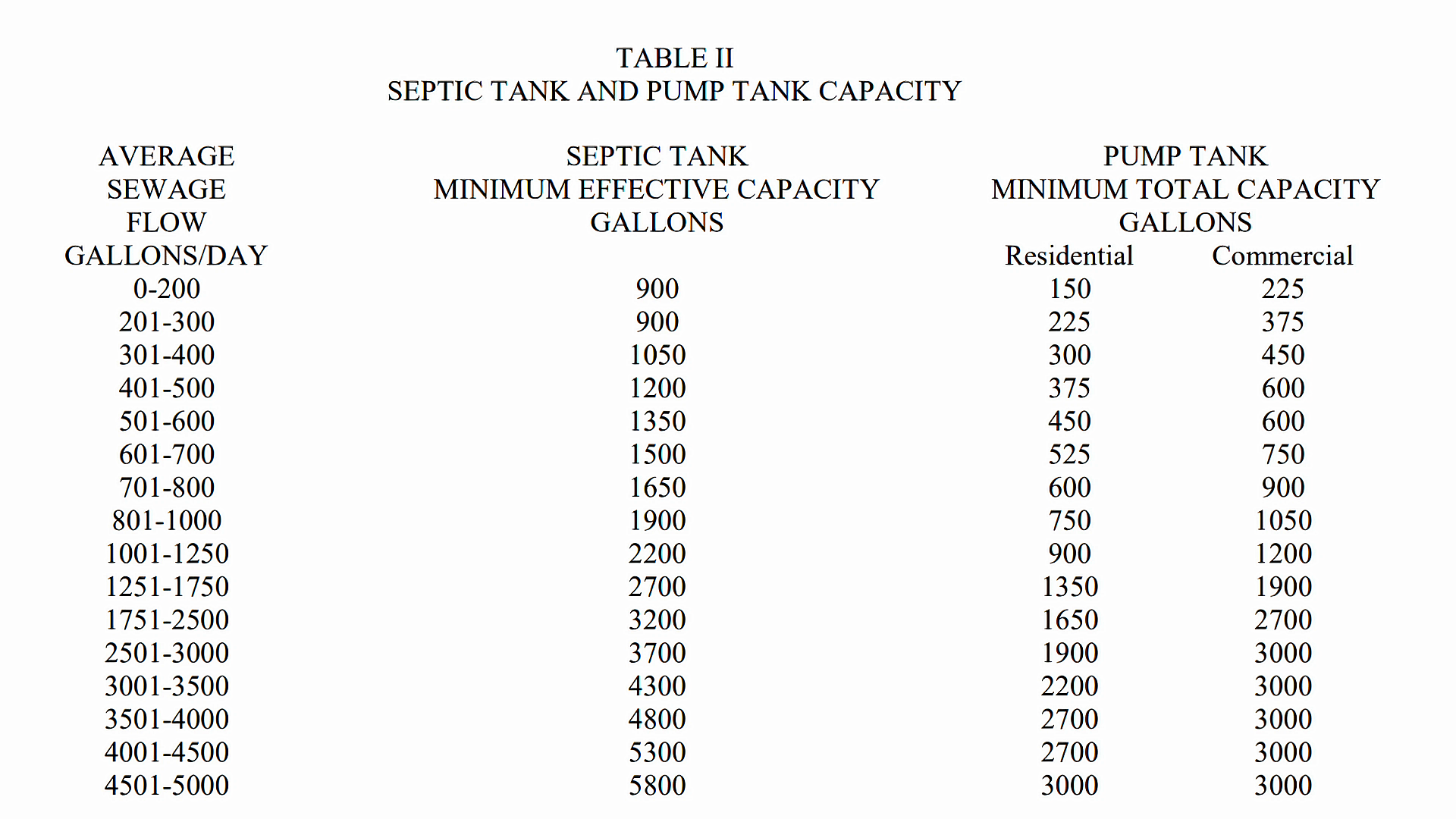
Septic Tank Installation in Florida
Unless the septic tank system is to be installed by a regulation-exempt property owner of a single-family residence, the system must be installed by a registered contractor or state licensed plumber. The Florida DOH provides a registry of licensed professionals to assist property owners in finding the right company for the job in their area. The FDOH licensee registry can also be used to help commercial business, industrial, and agricultural properties find septic tank contractors.
Permits and Inspections
Before burying and putting a new septic tank system into service, the county health department must be informed once the construction activities are complete. The department will then inspect the system to ensure it complies with the state’s current requirements. If the system is approved after inspection, the DOH will issue a “Construction Approval” notice to the installer approving the system for use.
In case the new septic system does not pass the inspection, the installer must make all necessary corrections, and then inform the county health department to reinspect the system. The installer will be charged a reinspection fee for each additional inspection until approval.
Maintenance and Pumping
Regular maintenance is necessary to keep septic tank systems running and working properly so as to prevent environmental contamination, maintain public health, and prevent the creation of a public nuisance. Florida state law requires septic tanks to be pumped by a state-licensed septage disposal company. Florida state guidance recommends septic tanks to be pumped every 3 to 5 years.
Need a Septic Tank in Florida? Choose the National Tank Outlet to Supply
If you’re a property owner having your new home built, a business, or a contractor in Florida in need of a reliable, durable, and cost-effective septic tank, look no further than National Tank Outlet. Our underground septic tank selection is top-in-class and designed with both residential and commercial applications in mind. Built to last, easy to install, and available in the sizes you need, our Norwesco USA made septic tanks don’t compromise on quality.
Whether a new system is being installed or an old one replaced, our product experts are ready to help make sure you find the right septic tank for the job. Take advantage of our competitive prices and save up to 50% MSRP on your next poly septic tank with our lowest price guarantee. Browse our collection of Florida approved septic tanks for sale and ready for nationwide delivery.
Additional Resources
- Florida Department of Environmental Protection Onsite Sewage Program
- Local Florida County Health Departments
- All Florida DEP Sewage Content
- Florida Registered Septic Tank Contractors
Disclaimer: This guide is intended to provide general information and expectations around the installation and requirements of a septic tank and system in the state of Florida and is not intended to substitute for advice, legal counsel, or consultation from state departments or licensed professionals. The information provided is current and accurate to the best of our knowledge at the time of this writing. For specific advice on your individual situation, please consult with the Florida Department of Environmental Protection (DEP), your local county department, or a licensed septic tank professional contractor.
